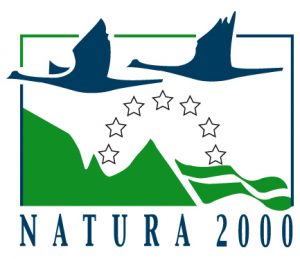Piloting integrated wetland restoration approaches in Latvia and Lithuania
The project aims at establishing and demonstrating the intrinsic link between fully functioning natural ecosystems and economic benefits for local communities. Two majorcomplexes of wetlands will be restored by different means (1460 hectares in total) in three Natura2000 sites, for the benefit of habitats and species and that will enhance the economic potential of localcommunities in the rural areas in Latvia and Lithuania. Project aims at restoring ecosystem functions on large scale in three Natura 2000 sites: LV Natura 2000 sites “Lubana mitrajs” and “Sitas un Pededzes paliene” and LT “Baltoji Voke Wetland Complex”.
Objectives
Conservation status will be improved on 580 ha (4% of national coverage) of habitat 6450 inLV. Additional EU habitat areas of 500 ha will be created in LT: 9% of habitat 7230, 34% of habitat7140, 15% of habitat 7160 and 6% of habitat 6270. The specific objectives are:
habitat 6450 inLV. Additional EU habitat areas of 500 ha will be created in LT: 9% of habitat 7230, 34% of habitat7140, 15% of habitat 7160 and 6% of habitat 6270. The specific objectives are:
- To restore hydrological regime (790 ha: 160 ha in LV and 630 ha in LT) that would lead to favourableconditions for conservation and management of habitats and species of EU importance;
- To restore habitats of EU importance on 1080 ha (580 ha of 6450 restored in LV to favourableconservation status and 500 ha of habitats created in LT (7140, 7160, 7230, 6270));
- To remove the risk of repeated overgrowing by introducing a long-term grazing management systemon all restored areas (1324 ha);
- To restore large-scale nature areas on 1460 ha that host breeding, staging and feeding habitats forwide range of wetland species, for example: Gallinago media (to reach 38-55), Porzana porzana (toreach 10-18), Cyanecula svecica (to reach 5-10), Bombina bombina (to reach 400-500) and Triturus cristatus (to reach 50-100);
- To demonstrate the value of fully functional natural ecosystems to the improved economic revenuesin farming (ecosystem services) on three different Natura 2000 sites;
- To pilot and gain knowledge on the effects of different grazing regimes on the target species andhabitats, and share this knowledge on Boreal and EU level;

- To promote extensive grazing as an effective and self-sustaining conservation model in the Natura2000 areas;
- To develop project areas as nature tourism destination areas, and to promote a multi-functional useof the Natura 2000 areas;
- To raise awareness on Natura 2000 in the regions and its value in contributing to the regional development of less developed areas.
Sustainability of the Project Results
The project deals with large-scale restoration of the marshland habitats. Those habitats depend on management, and are closely linked to human activities. Therefore, we are set on returning them into the farming practices, and setting up the grazing structures, to ensure that the investments in their restoration are sustainable. By restoring the habitat complexes on such a large scale, we will re-create a system where ecosystems can function in a natural cycle, but with the human input for grazing and output for business. Grazing is the most appropriate management system that can be applied on the projectsites, because mowing is impossible in many locations due to the problem of access, high costs for removal of grass and a general lack of demand for the grass in the region. Grazing also delivers better impact in the context of biodiversity conservation as grazed areas are more diverse in vegetation and provide better habitat for species dependent on open agrarian landscape. By introducing grazing systems in restored areas, we ensure the sustainability of investments in restoration and we have calculated that grazing is the only management that can be applied in theareas also in an economic sense. To ensure the sustainability of investments, we engage farmers asassociated beneficiaries in the project and support the development of grassland-based products ofhigh added value, so that they could be able to remain in the grazing business also after the project. Furthermore, we only restore those grasslands where farmers confirm their commitment to continue with their management for at least 20 years via long-term conservation contracts. All restored wetlands will be managed also after the project, with income from RDP subsidies and cattle farming (meat and other products).
We are keen to demonstrate an ambitious approach to restoration of marshlands, by linking the returning the ecological functions to the areas with the improved income for farmers and thus demonstrating the ecosystem services in action.
Contacts
Ieva Savickaite
Project Coordinator
Tel.+37062917208
E-mail: ieva.savickaite@bef.lt
Duration
2021/10 – 2027/09
Support


The project LIFE MarshMeadows project no. LIFE20 NAT/LV/000273 is financed by the EU LIFE Programme, Republic of Lithuania and project partners.
Partners
Latvian Fund for nature (coordinating beneficiary)
Baltic Environmental Forum Lithuania
SIA FRIEDRICH HAASE
SIA M.M.P Vest
Pievu pauksciai
SIA Sita Nature park
SIA Tiravoti
